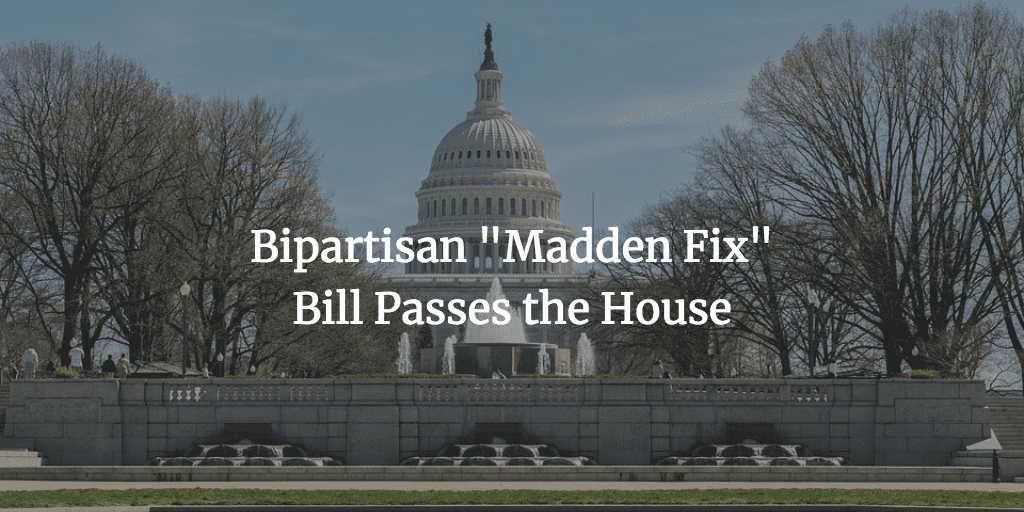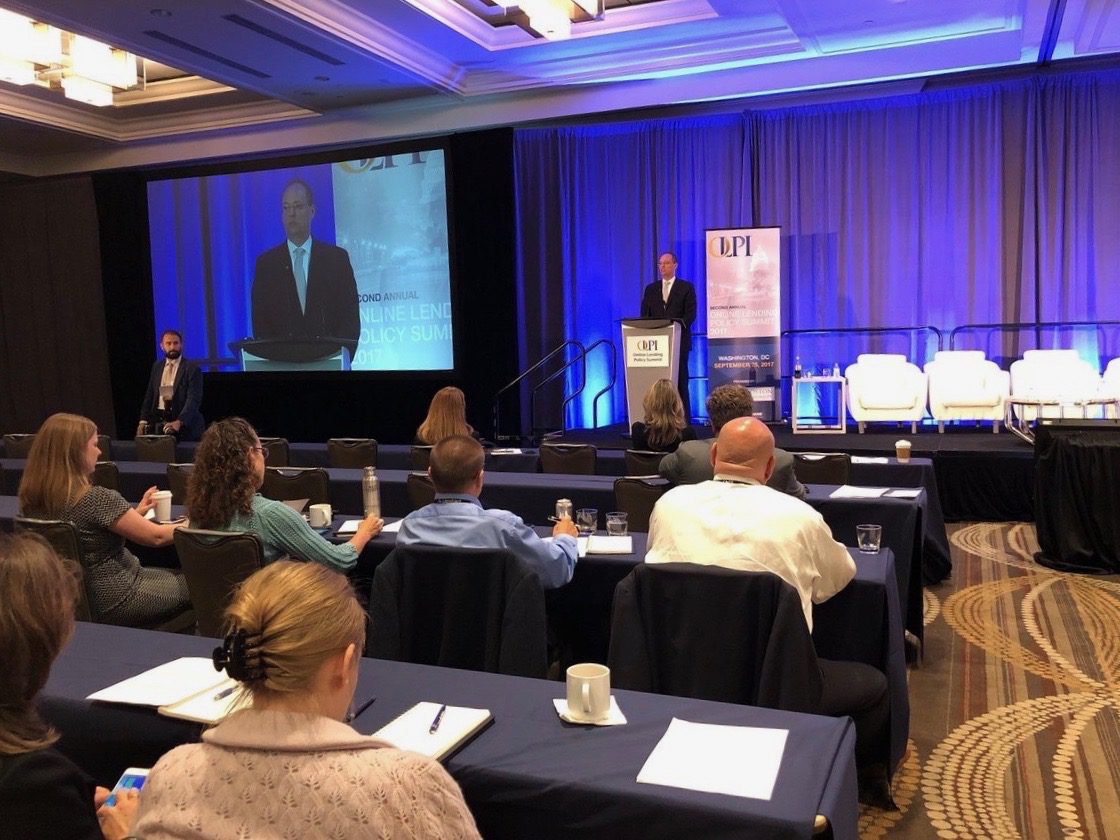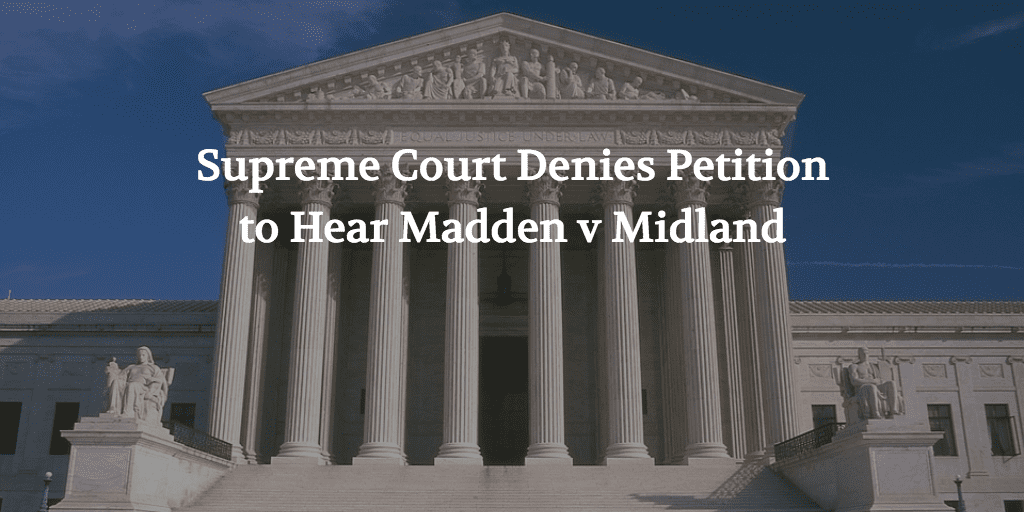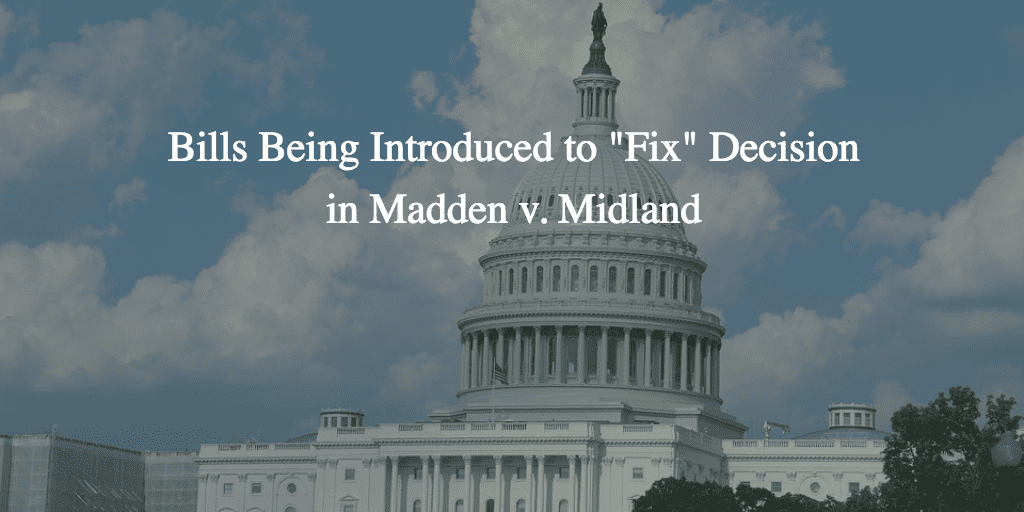We have been covering the Madden issue for several years here on Lend Academy (the full list of coverage is...
Yesterday, I attended the second annual Online Lending Policy Summit in Washington DC. It was headlined by the Acting head of the...
The Madden v. Midland case has been a closely followed case for over two years by the marketplace lending industry; bills are now being introduced to hopefully fix the ambiguity around the case; Lend Academy shares the history of the case and perspectives from Adam Levitin, professor of law at Georgetown University, Nat Hoopes, executive director of the Marketplace Lending Association, and Brian Korn, partner at the law firm Manatt, Phelps & Phillips. Source
Madden v. Midland has been proceeding since 2015; Judge Cathy Seibal of the US District Court for the Southern District of New York issued a decision in the case on February 27; Manatt, Phelps & Phillips, LLP provides their insight on the court's decision; the central focus of the case is on the inconsistency between the issuing lender (New York) and Midland Funding, the debt collector, (Delaware); the judge ruled in favor of the borrower in default setting a precedent for better alignment between rates of issuing lenders and the loan's affiliated debt collectors. Source
[Editor’s Note: We recently covered in depth what is going on with marketplace lending and regulation in a podcast with Brian...
[Editor’s Note: This is a guest post from Scott Stewart, CEO of the Innovative Lending Platform Association. ] Courts are distorting...
Nathaniel Hoopes, head of the Marketplace Lending Association shares how the Madden v. Midland decision is having an adverse impact on borrowers in an American Banker opinion article. Source
The Madden v. Midland case has been a topic many lenders have been following closely for over two years. Our...
The US District Court for the Southern District of New York issued a decision in Madden v. Midland Funding, LLC; in determining whether New York or Delaware law governed the contractual relationship of the parties, the judge ruled that applying Delaware law would violate usury policies in New York which limit interest to 25% per year. Source
We have covered the Madden vs. Midland Funding case in depth over the last year. It is centered around exporting interest...







